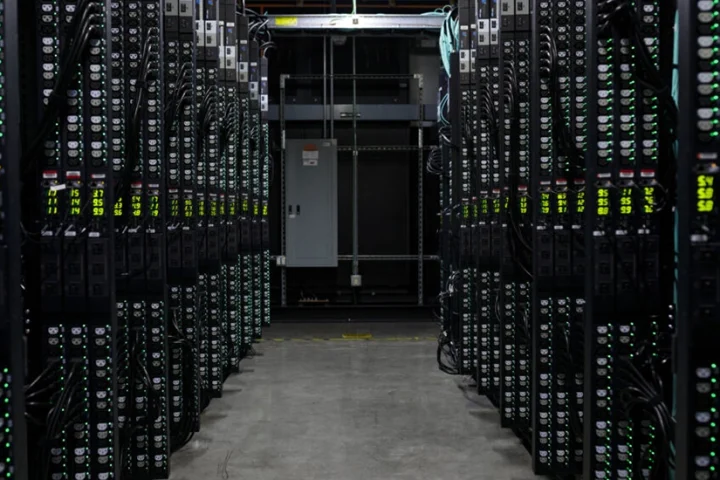Amazon Web Services, announced launch of a new AWS Local Zones location in Muscat, Oman. AWS Local Zones are a type of infrastructure deployment that places AWS compute, storage, database, and other services near large population, industry, and information technology (IT) centers—enabling customers to deploy applications that require single-digit millisecond latency to end users or on-premises data centers.
Customers can run workloads with low latency requirements on AWS Local Zones while seamlessly connecting to the rest of their workloads running in AWS Regions. AWS now has 25 AWS Local Zones around the world, with announced plans to launch 27 more AWS Local Zones globally.
“AWS Local Zones contribute to the Sultanate’s efforts to accelerate digital transformation and burgeon the digital economy while strengthening Oman as a major global hub for cloud services hosting,” said Dr. Ali Amur Al Shidhani, undersecretary of the Ministry of Transport, Communications, and Information Technology. “AWS Local Zones help Oman businesses store their data locally and benefit from select AWS cloud services like analytics, artificial intelligence, and computing. Oman aspires through these investments to progress the National Digital Economy Program and Oman’s Vision 2040 to accelerate digitization in strategic and economic sectors.”
For applications that require single-digit millisecond latency or have to remain within a geographic boundary for regulatory reasons, the location of cloud infrastructure matters. Most customer workloads run in an AWS Region, a geographic location where AWS clusters data centers to serve customers. However, when a Region is not close enough to meet low latency or data residency requirements, customers need AWS infrastructure closer to their data source or end users.
Organizations have traditionally maintained these location-sensitive workloads on premises or in managed data centers that require customers to procure, operate, and maintain their own IT infrastructure, and use different sets of APIs and tools for their on-premises and AWS environments.
The launch of a new AWS Local Zones location in Muscat gives customers the ability to easily deploy applications located close to end users in the metro area. Having AWS Local Zones close to large population centers in metro areas enables customers to achieve the low latency required for use cases like online gaming, live streaming, and augmented and virtual reality. They can also offer customers operating in regulated sectors like health care, financial services, and public sector the option to keep data within a geographic boundary.
AWS manages and supports AWS Local Zones, meaning customers do not incur the expense and effort of procuring, operating, and maintaining infrastructure in various cities to support low latency applications. AWS Local Zones can also help organizations migrate additional workloads to AWS, supporting a hybrid cloud migration strategy and simplifying IT operations. Customers can connect to AWS Local Zones through an internet connection, private network connections to both AWS Local Zones and any AWS Region.
“With today’s launch of an AWS Local Zones location in Muscat, we are proud to bring the cloud closer to AWS customers, so they can deploy latency-sensitive workloads and store data locally,” said Wojciech Bajda, AWS director of Public Sector, Middle East and Africa. “We’ve designed AWS Local Zones to support a broad range of use cases—from trading applications that need to respond quickly to market fluctuations to interactive live event and gaming experiences. Customers in a variety of industries can now deliver innovative, new services and experiences to their end users, all with familiar AWS infrastructure, services, APIs, and tools.”
The new AWS Local Zones location in Muscat is the newest addition to AWS infrastructure in Oman, which includes AWS Outposts and AWS edge locations that launched earlier this year, giving customers in the country access to faster content delivery and cybersecurity protection services.
Oman Data Park, established in 2011 in Muscat, offers managed IT, cloud services, security, and application hosting from their own data centers. “We welcome the launch of AWS Local Zones in Oman as it helps us provide our clients with leading-edge cloud and managed services,” said Eng. Maqbool Al Wahaibi, CEO of Oman Data Park. “Aligned with Oman Vision 2040, AWS’s infrastructure investment will bolster the digital economy in the Sultanate through the building of a knowledge-based economy and creation of jobs in technology sectors throughout the country.”
PwC, an AWS Partner, is a network of firms in 152 countries with over 328,000 people committed to delivering quality in assurance, advisory, and tax services. “This launch brings AWS’s trusted infrastructure closer to our Omani clients across private and public sectors and industries to help them build agile, purpose-built solutions with security and low latency,” said Nayaz Mohammed, technology partner, PwC Oman. “At PwC Middle East, we are committed to supporting clients’ digital transformation journeys by reducing complexity and advising from research and sector expertise. Cloud technology is the driving force helping organizations streamline operations, innovate, and bolster security and agility. AWS infrastructure and services help us support Oman’s digital transformation program and accelerate our clients’ growth ambitions.”





















